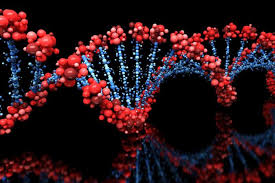
A new research suggests that so-called 'intelligence genes' helps those possessing it live longer because hose genes promote old age.
Scientists have been able to identify over 500 that are believed to be related to people with high IQs and this number is more than 10 times more than have been previously thought.
This has propped up deliberations of making use of simple saliva DNA test to test intelligence.
Previous research has shown that transmissions of signals between different parts of the brain are boosted by certain intelligence genes. They also protect the bran from premature death and dementia.
Study author Dr David Hill from Edinburgh University said: “Intelligence is a heritable trait with estimates indicating between 50 and 80 per cent of differences in intelligence can be explained by genetic factors.”
“People with a higher level of cognitive function have been observed to have better physical and mental health, and to have longer lives.”
About 850,000 people only in the UK are affected by dementia and allzheimer's disease.
A research back in December 2017 also hinted that higher IQs and better sleep is attained by children.
The study had found that IQ scores are enhanced by 4.8 points for youngsters who consume at least once a week, compared to those who have never had such food. It also had suggested that such children eating fish on a regular basis tend to be able to be active during the day and resists going to bed and are less likely to awake during the night.
Study author Professor Adrian Raine from the University of Pennsylvania, said: “If fish improves sleep, great. If it also improves cognitive performance - like we've seen here - even better. It's a double hit.”
Still earlier researches have suggested that intelligence is boosted by growth and development of nerves among people who eat fish because of the specific property of omega-3 acids that are present in certain types of fish.
Additionally, sleep and wakefulness are regulated by the hormone melatonin produced by these fatty acids.
541 Chinese students aged 12 years old were analyzed by the researchers.
Thinking skills have bene related to 178 regions of the human genome and intelligence is affected by 538 genes, the current research report further suggests.
Dr Hill said: “Our study identified a large number of genes linked to intelligence. First, we found 187 independent associations for intelligence and highlighted the role of 538 genes being involved - a substantial advance. We used our data to predict almost seven per cent of the variation in intelligence in one of three independent samples. Previous estimates of prediction have been around five per cent at most.”
The findings were published in the journal Molecular Psychiatry.
A study that was conducted earlier this year hinted that only 52 genes are related to intelligence. That study was conducted on more than 78,000 people.
(Source:www.dailymail.co.uk)
Scientists have been able to identify over 500 that are believed to be related to people with high IQs and this number is more than 10 times more than have been previously thought.
This has propped up deliberations of making use of simple saliva DNA test to test intelligence.
Previous research has shown that transmissions of signals between different parts of the brain are boosted by certain intelligence genes. They also protect the bran from premature death and dementia.
Study author Dr David Hill from Edinburgh University said: “Intelligence is a heritable trait with estimates indicating between 50 and 80 per cent of differences in intelligence can be explained by genetic factors.”
“People with a higher level of cognitive function have been observed to have better physical and mental health, and to have longer lives.”
About 850,000 people only in the UK are affected by dementia and allzheimer's disease.
A research back in December 2017 also hinted that higher IQs and better sleep is attained by children.
The study had found that IQ scores are enhanced by 4.8 points for youngsters who consume at least once a week, compared to those who have never had such food. It also had suggested that such children eating fish on a regular basis tend to be able to be active during the day and resists going to bed and are less likely to awake during the night.
Study author Professor Adrian Raine from the University of Pennsylvania, said: “If fish improves sleep, great. If it also improves cognitive performance - like we've seen here - even better. It's a double hit.”
Still earlier researches have suggested that intelligence is boosted by growth and development of nerves among people who eat fish because of the specific property of omega-3 acids that are present in certain types of fish.
Additionally, sleep and wakefulness are regulated by the hormone melatonin produced by these fatty acids.
541 Chinese students aged 12 years old were analyzed by the researchers.
Thinking skills have bene related to 178 regions of the human genome and intelligence is affected by 538 genes, the current research report further suggests.
Dr Hill said: “Our study identified a large number of genes linked to intelligence. First, we found 187 independent associations for intelligence and highlighted the role of 538 genes being involved - a substantial advance. We used our data to predict almost seven per cent of the variation in intelligence in one of three independent samples. Previous estimates of prediction have been around five per cent at most.”
The findings were published in the journal Molecular Psychiatry.
A study that was conducted earlier this year hinted that only 52 genes are related to intelligence. That study was conducted on more than 78,000 people.
(Source:www.dailymail.co.uk)





